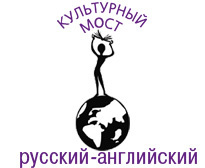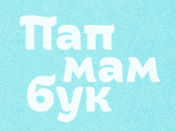
|

Цирк! Цирк! Цирк!
Цирк! Цирк! Цирк!
(По книге «Владимир Дуров»)
Цирк придумали древние римляне. Слово «цирк» на языке древних римлян означает круг, а в цирке все круглое.
Цирк – это целый мир.
Купол похож на небо. Под куполом подвешены трапеции и веревочные лестницы для воздушных гимнастов.
Арена – как земля. Здесь вперемешку люди и звери.
Римляне посыпали арену песком. Слово «песок» на их языке и есть «арена».
Арену часто называют манежем. Название «манеж» сохранилось с тех времен, когда в цирке выступали только лошади и наездники.
На манеже проходит большая часть циркового представления. Сегодня пол манежа делают из каучука. Он ровный и гладкий.
От зрительного зала манеж отделен барьером. По барьеру могут бегать дрессированные собачки и обезьянки. Иногда лошади ставят на барьер передние ноги и кланяются зрителям.
Круговые ряды вокруг арены называются амфитеатром. Здесь сидят зрители. Они смотрят представление и едят мороженое.
Количество знаков – 787
Перевод на английский язык:
Circus! Circus! Circus!
From the book “Vladimir Durov”
Ancient Romans came up with the circus. The word circus in the Ancient Roman language is the same word as circle, and almost everything in the circus is circular. A circus is almost like another world. The dome is like the sky. Trapezes and rope ladders are hung under the dome for air gymnasts. The arena is like the land. Both people and animals perform there.
The Romans sprinkled sand onto the arena. In their language, the word sand meant arena. The arena is often called a manege. The word manege was preserved from the times when there were only horses and horseback riders performing in the circus.
A big part of the show is performed on the manege. These days, the floor is made of rubber. It is flat and smooth.
The auditorium is separated from the arena by a wall. Trained dogs and monkeys can run around on it. Sometimes, horses put their front feet on the wall and bow to the audience. The circular rows around the arena are called the amphitheater. Over there sits the audience. They watch the performance and eat ice-cream.
(По книге «Владимир Дуров»)
Цирк придумали древние римляне. Слово «цирк» на языке древних римлян означает круг, а в цирке все круглое.
Цирк – это целый мир.
Купол похож на небо. Под куполом подвешены трапеции и веревочные лестницы для воздушных гимнастов.
Арена – как земля. Здесь вперемешку люди и звери.
Римляне посыпали арену песком. Слово «песок» на их языке и есть «арена».
Арену часто называют манежем. Название «манеж» сохранилось с тех времен, когда в цирке выступали только лошади и наездники.
На манеже проходит большая часть циркового представления. Сегодня пол манежа делают из каучука. Он ровный и гладкий.
От зрительного зала манеж отделен барьером. По барьеру могут бегать дрессированные собачки и обезьянки. Иногда лошади ставят на барьер передние ноги и кланяются зрителям.
Круговые ряды вокруг арены называются амфитеатром. Здесь сидят зрители. Они смотрят представление и едят мороженое.
Количество знаков – 787
Перевод на английский язык:
Circus! Circus! Circus!
From the book “Vladimir Durov”
Ancient Romans came up with the circus. The word circus in the Ancient Roman language is the same word as circle, and almost everything in the circus is circular. A circus is almost like another world. The dome is like the sky. Trapezes and rope ladders are hung under the dome for air gymnasts. The arena is like the land. Both people and animals perform there.
The Romans sprinkled sand onto the arena. In their language, the word sand meant arena. The arena is often called a manege. The word manege was preserved from the times when there were only horses and horseback riders performing in the circus.
A big part of the show is performed on the manege. These days, the floor is made of rubber. It is flat and smooth.
The auditorium is separated from the arena by a wall. Trained dogs and monkeys can run around on it. Sometimes, horses put their front feet on the wall and bow to the audience. The circular rows around the arena are called the amphitheater. Over there sits the audience. They watch the performance and eat ice-cream.



